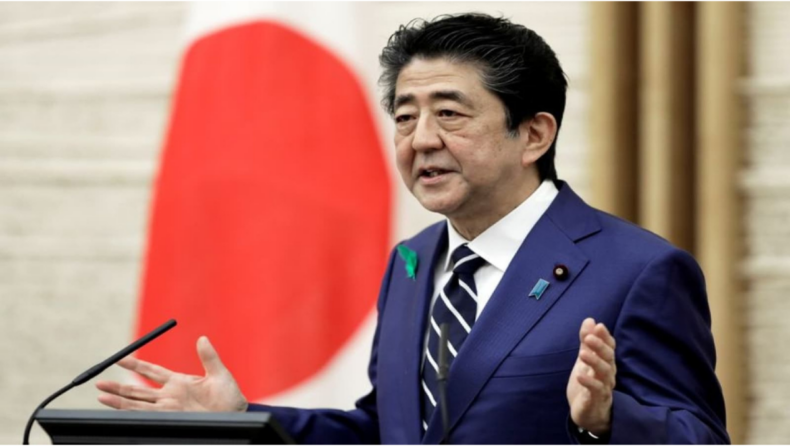Shinzo Abe, who was born into a renowned political family, was the country’s longest-serving prime minister when he was shot during a campaign rally in western Japan on Friday.
While credited as restoring stability to Japan after a period of economic depression, Abe’s nationalistic rhetoric and proposals to rewrite the country’s pacifist constitution enraged neighbours South Korea and China, as well as many Japanese.
Some Key Dates In Abe’s Life And Career
September 21, 1954:Shinzo Abe was born in Tokyo, the son of Shintaro Abe, who served as Japanese foreign minister, and grandson of Nobusuke Kishi, a former prime minister.
1977: Seikei University graduates of Tokyo with a degree in political science, then move to the US to study public policy at the University of Southern California for three semesters.
1979: Launches at Kobe Steel as the company expands its overseas presence.
1982: Leaving company to pursue new positions in Foreign Affairs and the ruling Liberal Democratic Party.
1993: First elected member of the LDP legislature representing the southwestern Yamaguchi region. Abe, already regarded as a veteran, is a member of the Mori faction, led by his father, who died in 1991.
2005: Abe is appointed cabinet secretary under Prime Minister Junichiro Koizumi, when he leads talks to repatriate Japanese nationals abducted in North Korea. In the same year, he was elected head of the LDP, which puts him in a position to take over as prime minister.
September 26, 2006: Shinzo Abe becomes prime minister, overseeing economic transformation as he takes a strong stance on North Korea and seeks to work with South Korea and China.
2007: After losing an election that saw the LDP lose control of the legislature for the first time in 52 years, Abe resigned as prime minister, citing health reasons. Abe had been suffering from ulcerative colitis but was able to control it with medication.
2012: After being re-elected as LDP president, Abe becomes the next prime minister.
2013: In an effort to boost growth, Shinzo Abe introduces his “Abenomics” policies that reflect simple borrowing and structural changes. Japan-China relations are strained but are starting to improve after Abe met with Chinese leader Xi Jinping at the APEC summit in Beijing.
2014-2020: Re-elected LDP leader, serving two additional terms as prime minister four times in a row, in which he formed close ties with then-president Donald Trump, holding conferences and golfing together.
August 28, 2020: Announces his resignation as prime minister, outlining the cause of his death, after which his stomach ache recurred. At the time, Abe was already Japan’s longest-serving prime minister.
2021: Despite resigning, Abe shows he can still criticize Beijing for commenting on Taiwan, the Chinese-ruled island claims its territory and threatens to invade. In his speech, Abe warned that “military entertainment will lead to economic suicide.”
July 8, 2022: Shinzo Abe is shot and seriously injured during a campaign rally in the city of Nara. Police arrested the male suspect but his whereabouts were unknown.
Read More-
- The rupee descent to successive record lows pits RBI against a bearish market
- Number of undernourished folks in India declines to 224.3 million; obesity among adults on the rise: UN report
- Twitter Files A Plea For Judicial Review Of Indian Removal Orders
- UN Ocean Conference 2022-Transparency, Technology, and Illegal, Unreported and Unregulated Fishing
- Investor faith in vehicles financiers will be put to the test












